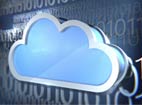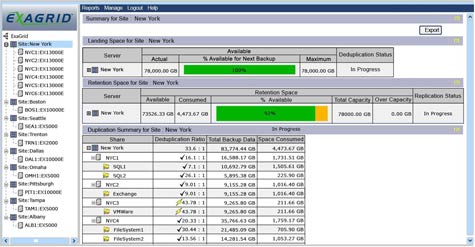For all the potential the cloud offers in terms of helping organizations protect data, most IT departments are still backing up data locally. While the cloud provides an attractive way to archive data, retrieving data quickly from the cloud can still be problematic. For that reason, most IT organizations still prefer to have a local copy of files and images that can be recovered quickly.
To make managing that process less cumbersome, ExaGrid today released an update to the software it provides with its backup storage appliances to add support for data deduplication across all the network-attached storage (NAS) systems and appliances participating in its scale out GRID backup and recovery architecture.
ExaGrid CEO Bill Andrews says global deduplication allows IT administrators to redirect a backup job, or any portion of a backup job, from one NAS share to any NAS share on any appliance without losing any deduplication. The ExaGrid appliance itself stores an undeduplicated form of the data being backed up in an ExaGrid landing zone that enables faster restores of that data. All long-term data is stored in deduplicated form, said Andrews. The end result, said Andrews, is a scale-out architecture that uniquely supports in-line data deduplication.
With this release, ExaGrid is also extending its support for Oracle Recovery Manager (RMAN) software, which enables ExaGrid appliances to be used to back up 800TB Oracle databases across multiple NAS shares. In all, Andrews says ExaGrid supports 25 different backup and recovery applications.
Most senior business executives don’t pay much attention to how data actually gets backed up. But when it needs to be recovered quickly, the amount of attention that brings to the internal IT department can be very uncomfortable indeed. For that reason, it doesn’t appear the local backup and recovery appliance is going away any time soon.




